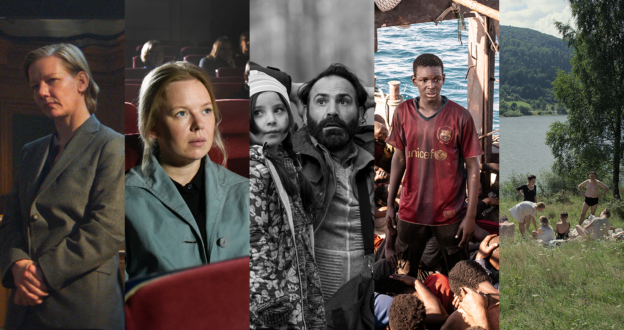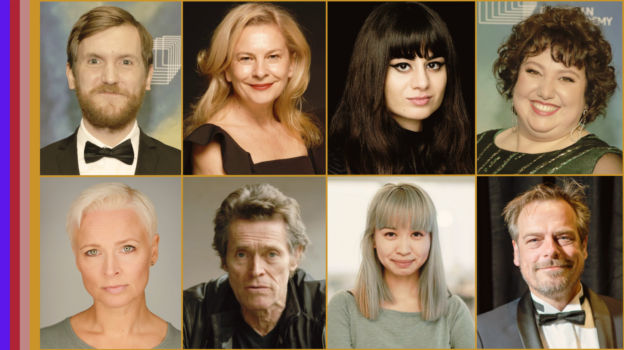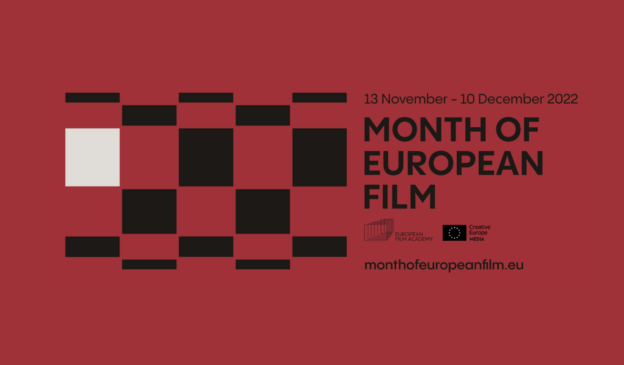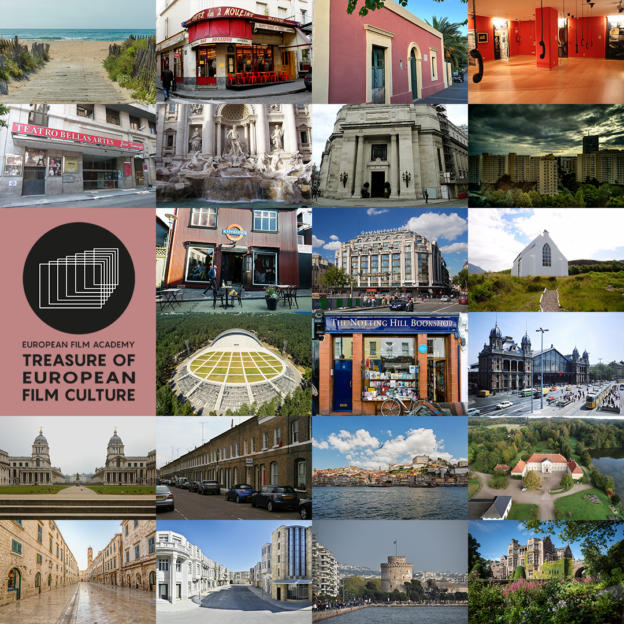| Heute hat die European Film Academy die Nominierungen in den Hauptkategorien der 36. European Film Awards veröffentlicht. Die Gewinner:innen werden bei der Preisverleihung, die das Beste der europäischen Filmkultur feiert, am 9. Dezember in Berlin bekanntgegeben. Auch in diesem Jahr werden die Nominierten in einem offiziellen Nominierungsvideo verkündet. Die Mitglieder des neu gegründeten European Film Club, filmbegeisterte Jugendliche aus ganz Europa, stellen darin alle nominierten Filme und Einzelleistungen vor. Dies sind die Nominierten 2023: |
 European Film: ANATOMIE EINES FALLS (ANATOMIE D’UNE CHUTE), Regie: Justine Triet, Produktion: Marie-Ange Luciani & David Thion (Frankreich) FALLENDE BLÄTTER (KUOLLEET LEHDET) Regie: Aki Kaurismäki, Produktion: Aki Kaurismäki, Misha Jaari, Mark Lwoff & Reinhard Brundig (Finnland, Deutschland) GRÜNE GRENZE (ZIELONA GRANICA) Regie: Agnieszka Holland, Produktion: Marcin Wierzchosławski, Fred Bernstein & Agnieszka Holland (Polen, Frankreich, Tschechische Republik, Belgien) ME CAPTAIN (IO CAPITANO) Regie: Matteo Garrone, Produktion: Matteo Garrone, Paolo Del Brocco, Ardavan Safaee & Joseph Rouschop (Italien, Belgien) THE ZONE OF INTEREST Regie: Jonathan Glazer, Produktion: James Wilson & Ewa Puszczyńska (Großbritannien, Polen, USA) |
 European Documentary: APOLONIA, APOLONIA, Regie: Lea Glob (Dänemark, Polen) FOUR DAUGHTERS (LES FILLES D’OLFA), Regie: Kaouther Ben Hania (Frankreich, Tunesien, Deutschland, Saudi Arabien) MOTHERLAND, Regie: Hanna Badziaka & Alexander Mihalkovich (Schweden, Ukraine, Norwegen) AUF DER ADAMANT (SUR L’ADAMANT), Regie: Nicolas Philibert (Frankreich, Japan) SMOKE SAUNA SISTERHOOD (SAVVUSANNA SÕSARAD), Regie: Anna Hints (Estland, Frankreich, Island) |
 European Director: Justine Triet für ANATOMIE EINES FALLS Aki Kaurismäki für FALLENDE BLÄTTER Agnieszka Holland für GRÜNE GRENZE Matteo Garrone für ME CAPTAIN Jonathan Glazer für THE ZONE OF INTEREST |
 European Actress: Sandra Hüller in ANATOMIE EINES FALLS Eka Chavleishvili in BLACKBIRD BLACKBIRD BLACKBERRY Alma Pöysti in FALLENDE BLÄTTER Mia McKenna-Bruce in HOW TO HAVE SEX Leonie Benesch in DAS LEHRERZIMMER Sandra Hüller in THE ZONE OF INTEREST |
 European Actor: Thomas Schubert in ROTER HIMMEL Jussi Vatanen in FALLENDE BLÄTTER Josh O‘ Connor in LA CHIMERA Mads Mikkelsen in THE PROMISED LAND Christian Friedel in THE ZONE OF INTEREST |
 European Screenwriter: Justine Triet & Arthur Harari für ANATOMIE EINES FALLS Aki Kaurismäki für FALLENDE BLÄTTER Maciej Pisuk, Gabriela Łazarkiewicz-Sieczko & Agnieszka Holland für GRÜNE GRENZE İlker Çatak & Johannes Duncker für DAS LEHRERZIMMER Jonathan Glazer für THE ZONE OF INTEREST |
 European Discovery – Prix FIPRESCI: Dieser Preis wird in Kooperation mit FIPRESCI, der internationalen Vereinigung der Filmkritiker:innen und Filmjournalist:innen an einen Regisseur oder eine Regisseurin eines Spielfilmdebüts vergeben. Ein Komitee aus FIPRESCI-Mitgliedern und Film-Expert:innen, die von der European Film Academy berufen werden, entscheiden über die sechs nominierten Filme. 20.000 ARTEN VON BIENEN (20.000 ESPECIES DE ABEJAS), Regie: Estibaliz Urresola Solaguren (Spanien) HOW TO HAVE SEX, Regie: Molly Manning Walker (Großbritannien, Griechenland) LA PALISIADA (ЛЯ ПАЛІСІАДА), Regie: Philip Sotnychenko (Ukraine) SAFE PLACE (SIGURNO MJESTO), Regie: Juraj Lerotić (Kroatien, Slowenien) THE QUIET MIGRATION (STILLE LIV), Regie: Malene Choi (Dänemark) VINCENT MUST DIE (VINCENT DOIT MOURIR), Regie: Stéphan Castang (Frankreich, Belgien) Hier finden sie die Nominierungen in den Hauptkategorien inklusive Synopsis, Besetzung, Stab und soweit vorhanden ein Statement der Regisseur:innen. Die Nominierungen basieren auf den Stimmen der 4.600 Academy-Mitglieder, die die Filme der jährlichen Academy Selection gesehen haben. Nach Bekanntgabe der Nominierungen werden die Mitglieder der Academy über die Gewinner:innen abstimmen. Das sind die Details des Preisverleihungsverfahrens. Die jährliche Academy Selection spiegelt die herausragende Qualität jedes einzelnen Filmes wider. Im Zuge des Auswahlprozesses wurden die Diversitäts- & Inklusionsstandards der European Film Academy berücksichtigt. Die Verleihung der European Film Awards – der renommierten und prestigeträchtigen Auszeichnung für den europäischen Film – wird von der European Film Academy und der European Film Academy Productions veranstaltet. |





